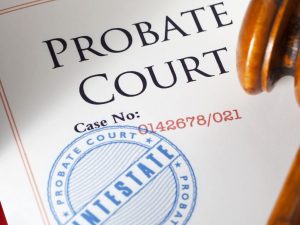If you have life insurance, lifetime survivor benefits, a home or other investments, who gets them and when depends on what you have done or should do: have an estate plan. This is how you legally protect your family and friends to be sure that they receive what you want after you die, says the article “How (and why) to avoid probate: A slap at your family!” from Federal News Network.
A common goal is to simplify your estate plan to make administering it as easy as possible for your loved ones. This usually involves structuring an estate plan to avoid probate, which can be time-consuming and, depending on where you live, add a considerable cost to settle your estate.
There are a number of ways to accomplish this through an estate plan, including jointly owned property, beneficiary designations and the use of trusts.
Many individuals hold property in joint names, also known as “tenant by the entirety” with a spouse. When one spouse dies, the other becomes the owner without probate. It should be noted that this supersedes the terms of a will or a trust.
Another type of joint ownership is “tenancy in common,” However, property held as tenants in common does not avoid probate. The distribution of property titled this way is governed by the will. If there is no will, the state’s estate laws will govern who receives the property on death of one of the owners.
Beware: property owned jointly is subject to any litigation or creditor issues of a joint owner. It can be risky.
Beneficiary designations are a seamless way to transfer property. This can take the form of a POD (payable on death) or TOD (transfer on death) account. Pensions, insurance policies and certain types of retirement accounts provide owners with the opportunity to name a beneficiary. Upon the death of the owner, the assets pass directly to the beneficiary. The asset is not subject to probate and the designations supersede the terms of a will or trust.
Review beneficiary designations every time you review your estate plan. If you opened a 401(k) account at your first job and have not reviewed the beneficiary designation in many years, you may be unwittingly giving someone you have not seen for years a nice surprise upon your passing.
If you own assets other than joint property or assets without beneficiary designation, an estate planning attorney can structure your estate plan to include trusts. A trust is a legal entity owning any property transferred into it. A trust can avoid probate and provide a great deal of control by the grantor as to what they want to happen to the property.
Reference: Federal News Network (March 30, 2022) “How (and why) to avoid probate: A slap at your family!”



